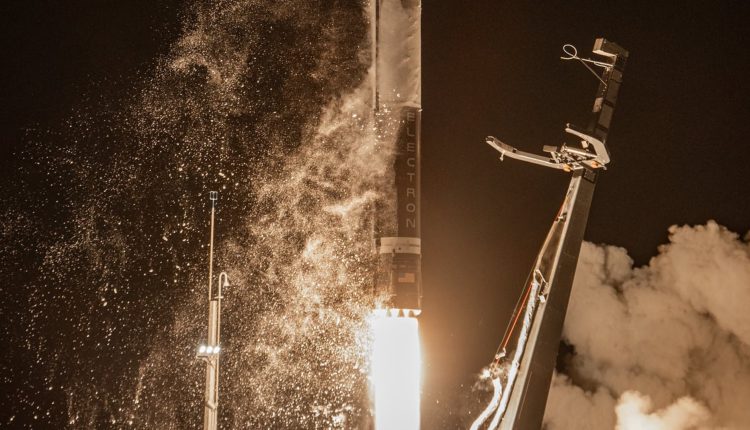The company’s Electron rocket carrying the CAPSTONE mission lifts off from New Zealand on June 28, 2022.
Rocket Lab
Rocket Lab stock fell in premarket trading after the company suffered its first launch failure in over two years early Tuesday morning.
The company confirmed its uncrewed 41st Electron rocket launch – lifting off from New Zealand and carrying the Acadia 2 satellite for San Francisco-based Capella Space – failed about 2 minutes and 30 seconds into the flight. Rocket Lab said it has begun working with the Federal Aviation Administration on investigating the root cause of the issue, which appeared to happen around the time the rocket’s first and second stages separated.
“We are deeply sorry to our partners Capella Space for the loss of the mission,” Rocket Lab said in a statement.
Shares of Rocket Lab fell as much as 26% in premarket trading from its previous close at $5.04. The stock was up 34% for the year as of Monday’s close.
Sign up here to receive weekly editions of CNBC’s Investing in Space newsletter.
The company’s 42nd Electron mission was set to launch before the end of the third quarter. But Rocket Lab warned it will be postponed while it resolves the launch failure. As a result, Rocket Lab expects to issue revised third quarter revenue guidance. In its second quarter report, Rocket Lab forecast about $30 million of launch services revenue – the minority of its overall forecast revenue between $73 million and $77 million, as the bulk was expected to come from its space systems unit.
Rocket Lab’s failure comes after the company built up a steady rhythm of successful launches, becoming the second-most active U.S. rocket company behind Elon Musk’s SpaceX. The Electron rocket hadn’t suffered a mission failure since May 2021, stringing together 19 successful launches in 28 months since then.
A rocket can remain grounded for an uncertain amount of time, with the length of investigations depending upon the severity and complexity of the issue. After its previous launch failure, Rocket Lab launched its next Electron mission 70 days later.
Read the full article here

